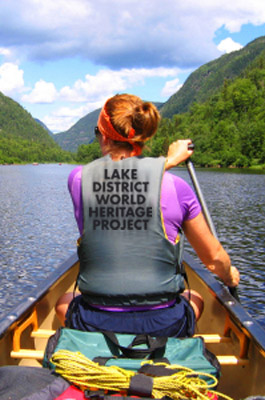How can our lakes be kept attractive?
The challenge
How to restore and maintain lakes so they support services to the tourism, leisure and recreation industries. For these purposes lakes must support fisheries, be suitable for water based sports, and must maintain their aesthetic appeal.
The solution
A wide range of tools have been developed to managed lakes to they provide high value services to their users. Because lakes are affected by a wide range of potentially detriment forces, and provide such a wide range of services, those tools need to be diverse and flexible. The basis for these tools is a growing understanding of the physical and biological processes that contribute to lake health, and the knowledge of the impact of pollutants or other adverse influences. These processes range from the nature and timing at which nutrients or other pollutants from surrounding catchments enter the lake, to lake characteristics such as depth, geometry, prevailing wind directions and speed, temperature, sunlight, and the range of organisms present.

Through better understanding of these processes, and by representing these processes in numerical models, it has been possible to identify which management interventions will delivered the desire changes in lake health. Provision these solutions has included the development of innovative arrays of sensors to monitor the changing physical and biological characteristics of lakes. In other cases, research has shown that actions were needed in the catchments to reduce phosphorus and nitrogen nutrient inflows. Elsewhere, research has shown where different invasive species has upset the natural equilibrium in reservoirs, and contributed to deterioration in water quality.
Resulting benefits
Identifying the most cost effective methods to maintain or restore lake health is the major benefit arising from this research. With adequate knowledge of lake behaviour, it is possible to manage these water bodies to minimise risks of dangerous and costly deterioration in quality. Expertise developed in the UK is now being applied in countries around the world, to help guide actions to remediate lakes that have been affected by invasive plants, or heavily polluted by agriculture or urbanisation.
In addition to the water utilities that manage reservoirs, other beneficiaries have included the recreational users (water sports, fishing, etc), benefits to biodiversity and to downstream communities and ecosystems.
Future directions
.Further improvements in lake health will involve increased use of collaborative actions between the wide range of stakeholders in land and lake health. This will involve better understanding and balancing of social and economic interests, with the physical driver that constraint lake behaviour. In order for this multidisciplinary approach to be effective, public awareness of and contribution to lake health, will need to be significantly improved.
Add Pingback





